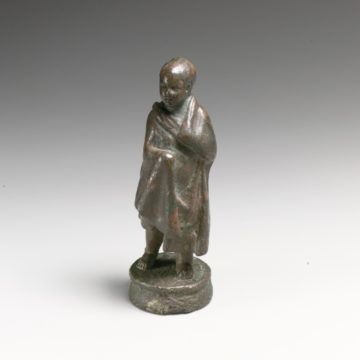From Lapham’s Quarterly:

John Stuart Mill’s early childhood education prioritized the basics—ancient Greek and Roman history, tomes on arithmetic, Don Quixote for dessert. It wasn’t until the age of twelve, armed with years of reading, that he dove into serious works of rhetoric and logic. (For those skeptical that any of the aforementioned texts have much to offer someone who had lived so little, the philosopher admits in his Autobiography that “most of these reflections were beyond my capacity of full comprehension at the time, but they left seed behind, which germinated in due season.”) One of the thinkers he read for the first time at the age of twelve was Quintilian.
Owing to his obscure style and to the scholastic details of which many parts of his treatise are made up, [he] is little read and seldom sufficiently appreciated. His book is a kind of encyclopedia of the thoughts of the ancients on the whole field of education and culture, and I have retained through life many valuable ideas which I can distinctly trace to my reading of him, even at that early age.
Quintilian taught rhetoric in Rome, later collecting his thoughts on the pedagogy of his beloved subject in his Institutio Oratoria, published in 95 and read for many centuries thereafter by budding orators such as Mill. In the final section of the book, Quintilian, speaking to potential practitioners of politics and law, considers the question of the best age to start practicing the art of rhetoric. Was Mill’s father right about the benefits of early training? Are recent college graduates primed to beat their elders at convincing speechifying? Does the tradition of the wise commencement speaker win approval from our ancient arbiter? Regardless of the correct answer—if there is one—Quintilian believed that a good teacher, speaking to crowds large and small, will win the affection of those hoping to learn from them: “It is scarcely possible to say how much more readily we imitate those whom we like.”
More here.
